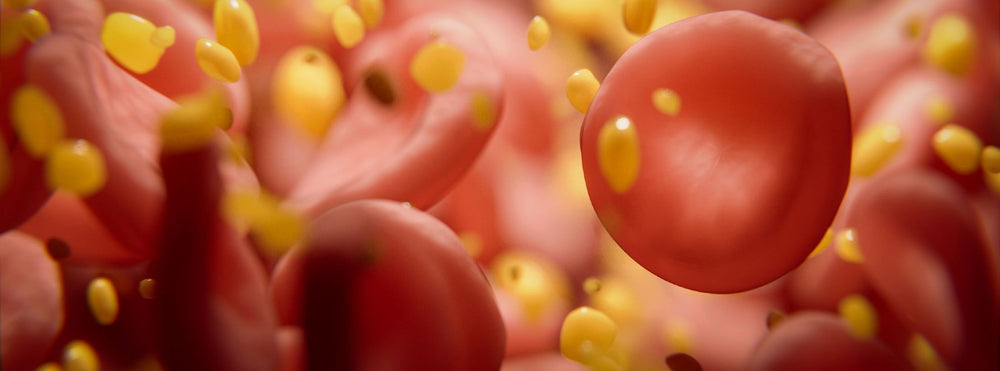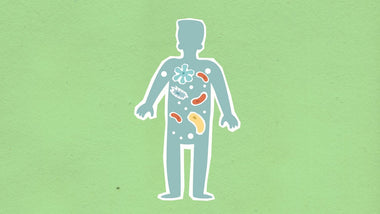Cholesterol FAQs: Part 4

There's a lot of confusion around cholesterol. This blog is the last part of a series in which I take on the most common questions people have about this topic.
To read Part 1, please click here. To read Part 2, please click here. To read Part 3, please click here.
And now on to Part 4:
Why is lowering cholesterol important?
Cholesterol, especially LDL cholesterol, is highly correlated with heart disease risk. In fact, there is almost a linear relationship between LDL levels and the chance that someone develops plaque buildup – especially if LDL is elevated for a long time. Heart disease is multifactorial, so LDL can be more or less significant depending upon other risk factors, but in general, if your goal is to avoid developing heart disease (or avoiding additional events if you already have heart problems), the lower the LDL number the better.
What is a normal LDL level?
That depends upon how you look at it. As already outlined in Part 1, LDLs in mammals other than humans (who by the way share the exact same cholesterol pathways as we do), average between 30 and 55 mg/dL. When we’re born, our LDLs are also typically in this range. However, nearly all American adults would have to be on multiple drugs to get to these levels – so 30 to 50 mg/dL is probably an unrealistic benchmark.
Most cardiologists would say everyone’s LDL should definitely be below 130 mg/dL, with optimal levels falling below 100 mg/dL in otherwise healthy individuals. If you have known heart disease (like a history of heart attack stroke, bypass surgery, stent etc.) OR IF YOU HAVE DIABETES, your LDL should be closer to or below 70 mg/dL. Attaining LDLs below 50 mg/dL is additionally protective in terms of risk, and these levels are recommended in people who have had multiple cardiovascular events. As a reality check, people who live in Blue Zones (those areas around the globe where individuals experience exceptional healthy longevity), have average LDL levels around 90 mg/dL.
Can LDL levels ever be too low?
In short, no. Our cells have the capacity to make their own cholesterol, so there’s never a risk of running out of it. Some cholesterol is needed to make hormones but it’s typically HDL which is used for that purpose. Individuals genetically blessed with LDL levels in the 30s throughout their lifetimes do not experience any excess risk of any illness, cancer, dementia, etc. (and almost never develop heart disease). And they still have enough LDL to make bile for the next meal.
Does a high HDL make up for a high LDL?
Not necessarily. If your total cholesterol is high and that’s only due to a high HDL, the elevated TOTAL cholesterol is much less worrisome. If your LDL is high and your HDL is high too, the negative impact of the high LDL might not be completely counterbalanced by the favorable HDL level. In general, we look at HDL and LDL as separate risk factors. When I run into this issue and it’s not clear that someone needs to be on statins, I will typically check a coronary calcium scan as the tie breaker.
Does everyone with a high LDL need to be on a statin?
Some physicians would say "yes" because of the known tight correlation between LDL levels and heart disease risk.
However, high cholesterol is only one risk factor and whether medication treatment is required needs to be considered within the context of the individual patient’s overall health circumstances. People who SHOULD be on statins include those with known atherosclerotic cardiovascular disease, those with diabetes and those with familial hypercholesterolemia (where LDL levels run over 190 mg/dL regardless of lifestyle factors). In everyone else, lifestyle efforts – and especially dietary adjustments - should be tried first. Consideration should also be given to checking a coronary calcium scan before starting statins in someone with elevated LDL who does NOT have heart disease, diabetes or familial hypercholesterolemia. This is what I do in my own practice.
How long does it take to lower cholesterol?
Medications can lower cholesterol almost instantly – you can see effects within days. But cholesterol levels can also change very quickly in response to diet. In studies where people were sequestered in laboratory settings and every morsel of food was controlled, LDL levels fell to their lowest attainable levels within 2 weeks! And we’ve demonstrated that even in a real world setting, using Step One Foods consistently can yield meaningful cholesterol reductions in most people after just 30 days.
This doesn’t mean you can’t have additional improvements over time. We are called “Step One” for a reason. Our products are meant to get you started and provide a simple and convenient foundation for your efforts, but losing weight (if you need to), getting more fit, and expanding your dietary efforts can yield even bigger improvements over time.
If I take statins do I still need to pay attention to diet?
YES! It’s so common for people to think that because they take a medication to lower cholesterol they no longer need to pay attention to what they eat. But nothing could be further from the truth. If you eat in a way that supports lowering cholesterol, you will need lower doses of medications to get to your cholesterol goal. Your medications will also be more impactful in terms of lowering risk. Turns out, for any cholesterol reduction, risk is lower if the reduction was achieved with the COMBINATION of medications and diet. Finally, diet is not just important for cholesterol lowering. It’s also important for blood pressure control, blood sugar control and for weight loss (all of which are also risk factors for heart disease).
As a final thought, it’s important to remember that we put people on medications not to make numbers perfect but to reduce the downstream risk of cardiovascular events. But medications can only go so far. What you eat, what you weigh, how much you exercise and whether you smoke are all risk factors that you control completely and only you can impact. Never rely on drugs to be the whole answer. They’re not.
Read the rest of the 4 part series:

Tested & Proven Results.
- Cardiologist formulated
- Supported by over 500 publications
- Clinically-proven, in a double-blind randomized trial with Mayo Clinic and The University of Manitoba
80% of participants lowered their cholesterol in just 30 days. With just two servings per day, Step One Foods offers a proven-effective way to naturally lower LDL (bad) cholesterol.
Get heart health tips and articles like this, delivered right to your email.
New articles every week.
You may also like...

The Most Misunderstood Heart Number (Plus Your Tune-Up Checklist)

Why Two People Can Eat the Same Calories—and Only One Gains Weight

You don’t need to avoid foods with cholesterol…except for these


